Modernity, Memory and Identity in South-East Europe
This series explores the relationship between the modern history and the present of South-East Europe and the long imperial past of the region. This approach aspires to offer a more nuanced understanding of the concepts of modernity and change in this region, from the nineteenth century to the present day. Titles focus on changes in identity, self-representation and cultural expressions in light of the huge pressures triggered by the interaction between external influences and local and regional practices. The books cover three significant chronological units: the decline of empires and their immediate aftermath, authoritarian governance during the twentieth century, and recent uses of history in changing societies in South-East Europe today.
Series editor: Catharina Raudvere
See the series at Palgrave Macmillan: Modernity, Memory and Identity in South-East Europe.
Titles
Ethnographic Discourses on Women and Islam in Turkey. A Critical Reading

Petek Onur, 2024
This book provides a meta-reading of how ethnographic discourses on women and Islam in Turkey have changed since their emergence in 1983. It analyses the published ethnographic works in three discursive periods and shows that paradigm shifts in social sciences, processes of neo-liberal globalization and globalization of Islamism as well as political, social, cultural and economic transformations at the local level shape these periods.
As an exceptional example of modernization in the Middle East and the post-imperial states in South-East Europe, Turkey has been experiencing tensions between Islamic beliefs and practices and Westernization and secularization processes. Countless aspects of Muslim women’s lives appear as symbols and indicators in this society like in many other Muslim majority societies and to scholars of gender and women’s studies in discussing the faith-based patriarchy. Thus, this book exhibits the necessity of developing a critical perspective on ethnographic representations of Muslim women in Turkey.
Find more information about the book at the publisher's website.
View all publications in the book series Modernity, Memory and Identity in South-East Europe.
Ottoman Nationalism in Transition from Empire to Republic, 1908–1931

Abdullah Simsek, 2024
This book deals with the complex process of national identity formation in the late Ottoman Empire and early Turkish Republic, during a crucial period characterized by transformative events that reshaped both the state and society.
These events included revolutions, wars, mass migrations, ethnic cleansing, genocide, the empire's disintegration, territorial and demographic changes, and the emergence of new states.
In the face of these events, a multitude of old and new formulations and imaginings of nation and national identity took shape and interacted with each other.
This book focuses on highlighting the diversity of concepts and trajectories that existed during the period and how these played out within a complex web of inclusionary and exclusionary processes, and the various ways in which the nation was constituted and conceptualized.
Neo-Ottoman Imaginaries in Contemporary Turkey
Catharina Raudvere and Petek Onur, 2022
This book presents gendered readings of cultural manifestations that relate to the Ottoman era as a preferred past and a model for the future. By means of claims of authenticity and the distribution of imaginaries of a homogenous desirable alternative to everyday concerns, as well as invoking an imperial past at the national level. In this mode of thinking, shaped around a polarised worldview, Republican ideals serve as a counter-image to the promoted splendour and harmony of the Ottomans. Yet, the stereotypical gender roles inextricably linked with this neo-Ottoman imaginary remain largely unacknowledged, dissimulated in the construction of the desire of an idealised past. Our adaption of a cultural studies perspective in this volume puts special emphasis on agency, gender, and authority. It provides a shared ground for the interrogation, through the contributions comprising this project of knowledge production about the past in light of what constitutes acceptable legitimacy in interpreting not only the canonical literature, but history at large.
Turkish Jews and their Diasporas. Entanglements and Separations
Kerem Öktem and Ipek Kocaömer Yosmaoğlu (eds), 2022
“Laying bare the twin myths of Ottoman tolerance and Turkish-Jewish friendship upon which so much of Turkish-Jewish history writing was founded, this volume demonstrates how a dwindling Jewish community and growing antisemitism in Turkey are now unravelling these myths before our very eyes. Full of sobering and incisive reflections on Ottoman and Turkish Jewish lives past and present, this book offers much to specialists and anyone interested in the processes of mineralization, displacement and diaspora in the modern era.”
—Julia Phillips Cohen, Vanderbilt University, USA
Read more at the publisher's website
Internationalism and the New Turkey
Erik Sjöberg, 2022
Examines the paradoxical relation between nationalism and internationalism in interwar Turkey.
The 1984 Winter Olympics and the Making of Sarajevo
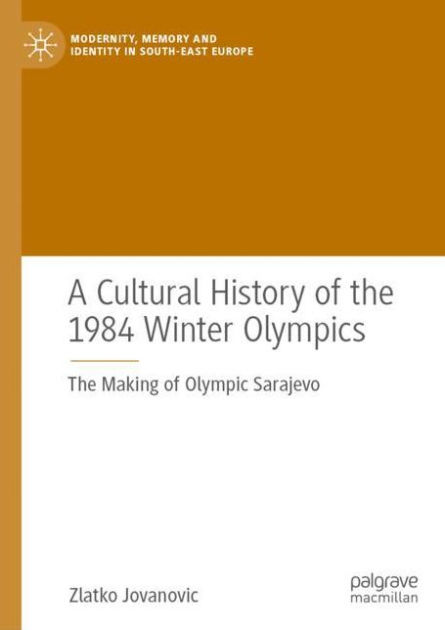
Zlatko Jovanovic, 2021
Jovanovic examines the 1984 Sarajevo Winter Olympic Games. It tells the story of the city's extensive infrastructural and socio-political transformation in relation to the hosting of the Games. Examining the changing global image of Sarajevo from the 1960s to the 1980s, the book explores how the promotion of the city as a future international tourist centre resulted in an increased awareness among its populace of the city’s cultural particularities.
Find more information about the book at the publisher's website
Nationalism and the Politicization of History in the Former Yugoslavia
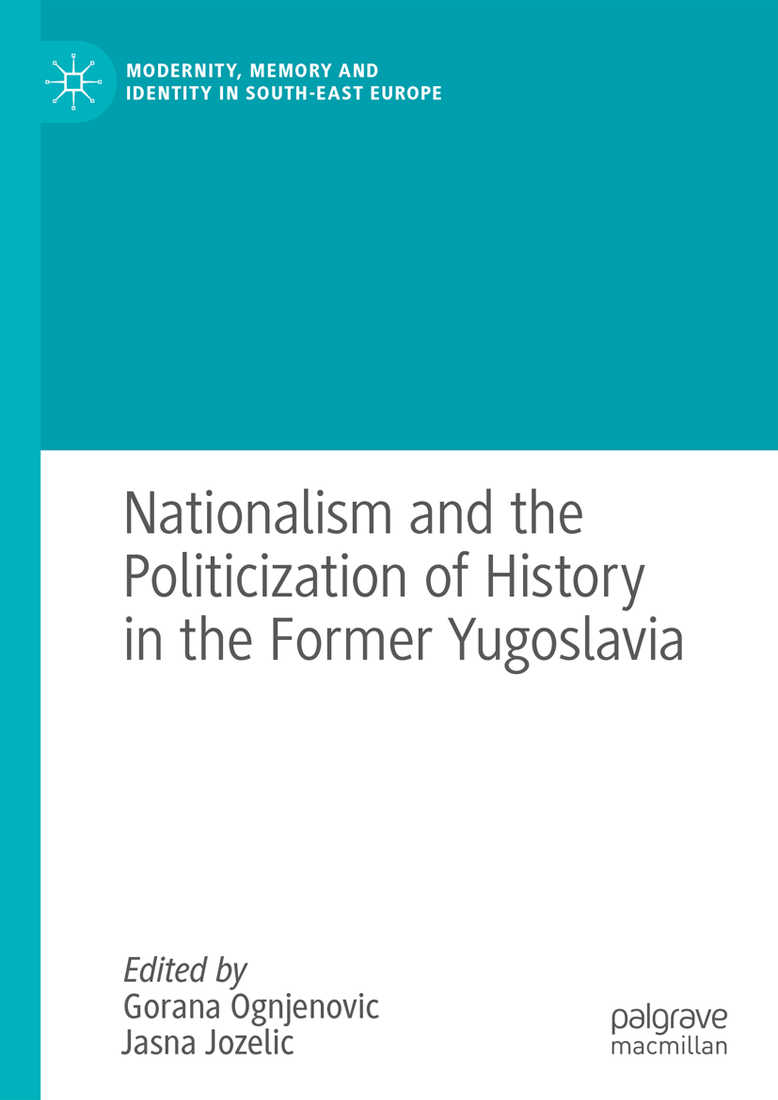
Gorana Ognjenovic and JasnaJozelic (eds.), 2021
Explores how nationalists in the former Yugoslavia have politicized history and historical narratives for political gain.
Narrated Empires: Perceptions of Late Habsburg and Ottoman Multinationalism
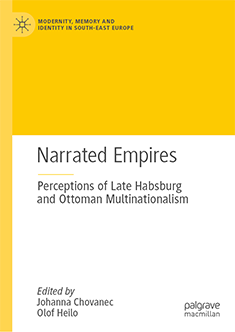
Johanna Chovanec and Olof Heilo (eds.), 2021
Examines imperial narratives of multinationalism as alternative ideologies to nationalism from 1848 to 1918.
Art, Religion and Resistance in (Post-)Communist Romania: Nostalgia for Paradise Lost
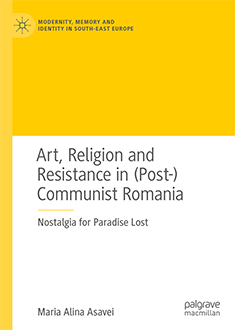
Maria Alina Asavei, 2020
Considers how artists have refashioned the meanings and purposes of religious art for political ends during and after communism.
New Social Movements and the Armenian Question in Turkey. Civil Society vs. the State
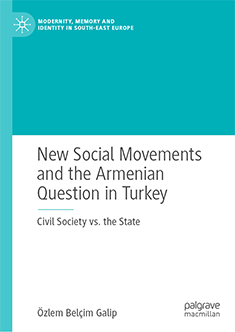
Özlem Belçim Galip, 2020
Explores how activists and intellectuals in Turkey have challenged state hegemony and opened up debates on the treatment of Armenians in Turkey Draws on new social movements theory to highlight the contribution of civil society Surveys treatment of Armenians in Turkey from the twentieth century through to the present day.
Intellectuals and Fascism in Interwar Romania
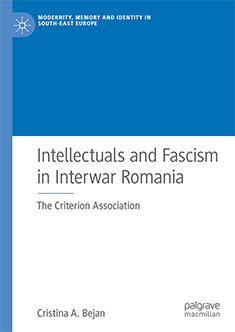
Cristina A. Bejan, 2019
Traces the lives of the young intellectual elite who made up Romania’s Young Generation and examines how many of them came to support fascism leading up to the disintegration of the liberal democratic state.
Geography and Nationalist Visions of Interwar Yugoslavia
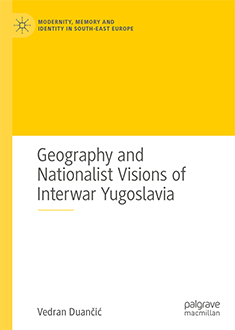
Vedran Duancic, 2020
This book is the first historical work to examine the notion of national territories in Yugoslavia – a concept fundamental for the understanding of Yugoslav history.
The Orthodox Church and National Identity in Post-Communist Romania
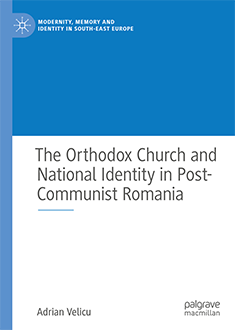
Adrian Velicu, 2020
Addresses the topic of Romanian national identity through the lens of the country’s Orthodox Church.
Turkey, Kemalism, and the Soviet Union. Problems of Modernization, Ideology and Interpretation
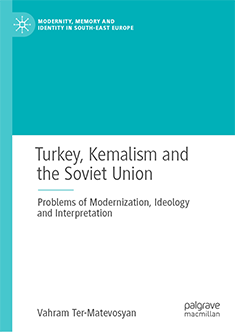
Vahram Ter-Matevosyan, 2018
Traces the lives of the young intellectual elite who made up Romania’s Young Generation and examines how many of them came to support fascism leading up to the disintegration of the liberal democratic state.
The New Ottoman Greece in History and Fiction
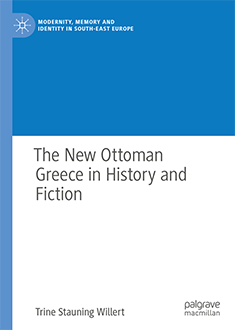
Trine Stauning Willert, 2018
Explores historical and literary narratives of the Ottoman past in contemporary Greek society and culture.
Nostalgia, Loss and Creativity in South-East Europe. Political and Cultural Representations of the Past
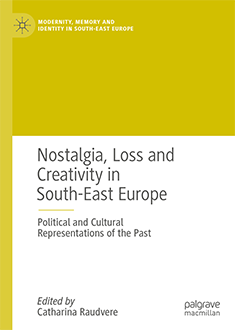
Catharina Raudvere (ed.), 2018
2018
Traces the lives of the young intellectual elite who made up Romania’s Young Generation and examines how many of them came to support fascism leading up to the disintegration of the liberal democratic state.
In the pipeline
Turkey’s Occidentalist Condition. Early Republican Literature between Empire and Europe
Johanna Chovanec
Dreams of Tsargrad. Constantinople and the Black Sea in Russian Imperial Imagination
Olof Heilo (ed.)
